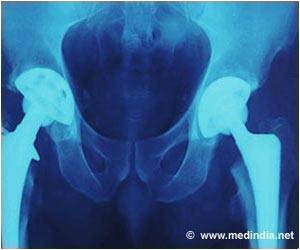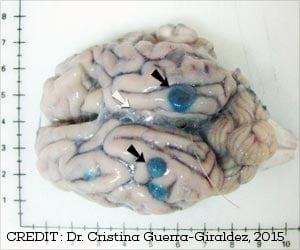Joint replacement rates halved in rheumatoid arthritis patients in the past decade, stated study.

Joint replacement surgery halved in rheumatoid arthritis patients between 1997-2010.1
The retrospective cohort study examined data from around one million people between 1997 and 2010 using administrative healthcare data. Results demonstrate a striking reduction of 51.9% (p<0.001) in joint replacement surgery in RA patients between 1997 and 2010.1
The number of joint replacements in matched controls increased by 31.9% (p=0.002) over the 13 years, although remained significantly less than in RA patients at both time points (4.78% vs. 0.47% in 1997 and 2.30% vs. 0.62% in 2010). Rates of cardiac interventions did not change significantly over time in either group suggesting the changes observed in joint replacement surgery were due to improvements in the treatment of RA rather than access to surgical procedures.1
"Literature to date has reported inconsistent findings," said Dr. John Hanly, Professor of Medicine (Rheumatology) and Pathology at Dalhousie University and attending staff rheumatologist at the Queen Elizabeth II Health Sciences Center, Halifax, Nova Scotia, Canada. "However, our results add significant evidence to show a clear reduction in joint replacement surgery in RA patients, most likely due to improvements in medical management over the last few decades."
Cases of RA were identified using a method previously validated in the same data set.3 Each case was matched by age and gender to four randomly selected controls. The number of RA cases increased from 3,913 (0.42%) to 4,911 (0.52%) over the study, the mean age changed from 56.7 to 60.1 years and the proportion of females from 70.8 to 73.9%. Annual frequency of joint replacement surgery as well as coronary artery interventions was compared.1
Advertisement
The management of RA has progressed significantly over the last 25 years from providing relief of symptoms to regimens that impact disease activity.4 This evolution has been multi-factorial, however it is widely recognised that the introduction of biological therapy with tumour necrosis factor inhibitors (TNFi) in the late 1990s revolutionised treatment.4,5,6,7 Furthermore, recent research from the UK and Denmark has demonstrated a decline in the incidence of joint replacements for RA patients directly following the introduction of TNFi.8,9 However, findings presented today suggest that, although TNFi use may reduce the need for total hip replacement (THR) in older and more severe RA patients, no association was found in younger or less severe patients. Neither was there an association in rates of total knee replacement (TKR) or other joint replacement.2
Advertisement
The study analysed the differences between RA patients who were TNFi or conventional synthetic disease-modifying antirheumatic drug (csDMARD) users in a 1:1 propensity score matched cohort of 19,116 patient records using the BSRBR/RA data. In the full study population, investigators found no significant association between TNFi use and THR or TKR. However, there was a significant reduction of THR by 40% in those over 60 years taking TNFi (HR 0.60 [CI:0.41-0.87]) and THR rate was cut by a quarter in TNFi users when analyses were restricted to more severe patients (DAS>5.1), although this didn't reach significance (HR 0.74 [CI 0.51-1.05]). No significant findings were found relating TNFi users with TKR procedures.2
Abstract number: SAT0077 and OP0116
Source-Eurekalert















